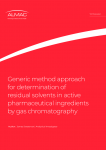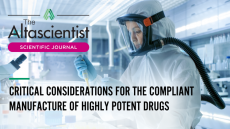$15k and API info: FDA releases guide to registering drug compounders

Compounders registered as outsourcers will have to report details of all the drugs they produce and pay a $15,000 (€12,000) fee.
Registering as an outsourcing facility can exempt compounding pharmacies from some provisions of the FD&C Act (Federal Food, Drug, and Cosmetic Act), including the requirement to label drug products with directions for use. It also binds them to GMP manufacturing and increased oversight and inspections.
Compounders have been allowed to register as outsourcing facilities since the passage of the Drug Quality and Security Act in November 2013. The option is currently voluntary, although encouraged by the FDA.
Under the latest FDA guidance, to be considered outsourcing facilities, compounders must renew their registration annually. Facilities registering for the first time will pay a $15,000 fee, adjusted for inflation.
Twice a year, outsourcing facilities will have to submit a drug product report to the FDA, identifying every drug compounded at the facility, as well as:
- The active ingredient and strength of active ingredient per unit;
- The source of the active ingredient (whether a bulk material or a finished drug);
- The dosage form and route of administration;
- The package description (such as syringe or bottle, and the volume per package);
- The number of individual units produced;
- The National Drug Code (NDC) number of the source drug or bulk active ingredient;
- The NDC number of the final product.
Outsourcing sites will also have to provide information about whether they intend to make products on the FDA’s drug shortage list, and whether they make sterile or non-sterile bulk drug substances.
The FDA will make this information public as well as the results of past inspections and compliance actions.
Applications will be submitted electronically using structured product labelling (SPL) format.
This is the latest in a series of changes to regulations surrounding drug compounding. The FDA recently banned pharmacies from compounding for doctors without an individual patient prescription.
Following the arrest in September of a compounding chemist linked to an outbreak of fungal meningitis that killed 64 patients, a drug safety insider told Outsourcing-Pharma.com compounding pharmacists lack the infrastructure, knowledge and regulatory oversight found among contract manufacturing organisations.


















